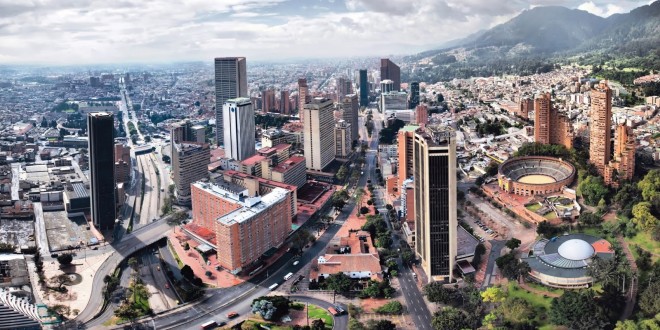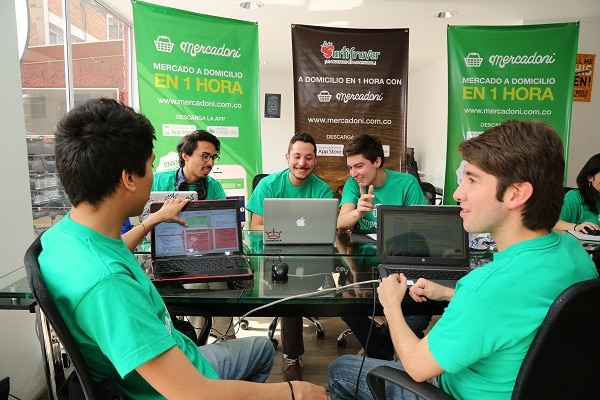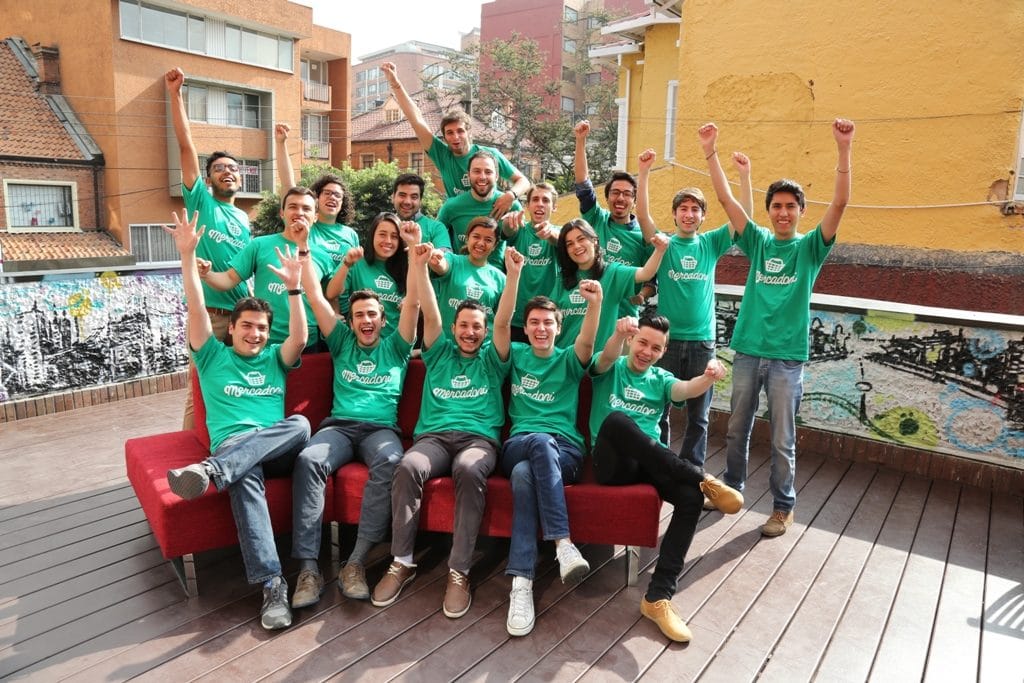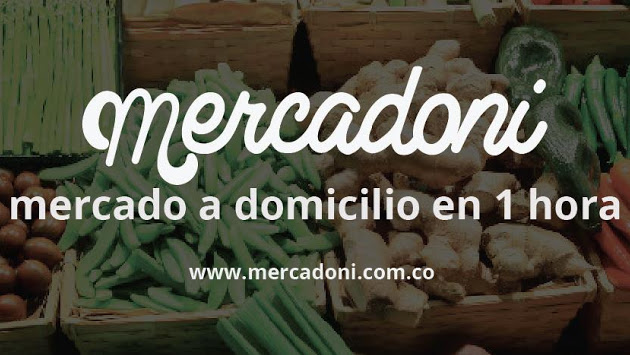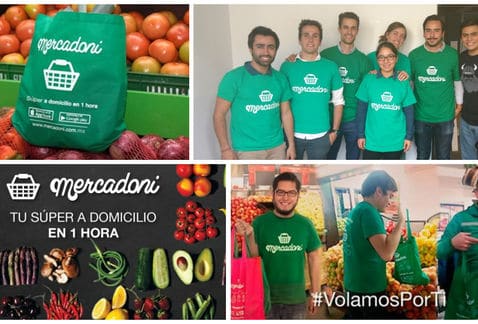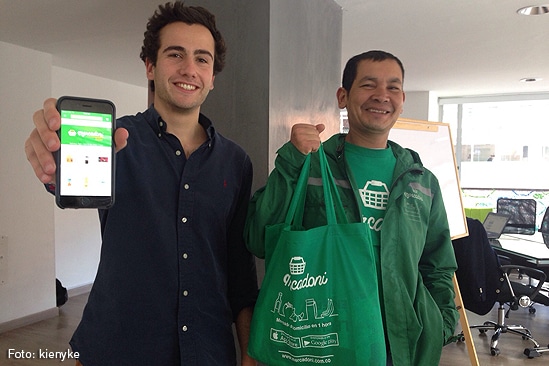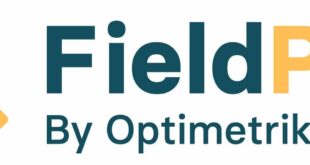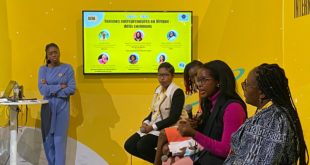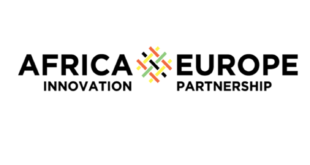
When you look into groceries in Latin America it’s a $300 billion industry offline. So if you take 1% of that online you get a $3 billion business company.
Hello Pedro, could you start with a presentation of Mercadoni?
Mercadoni is an app where users can order groceries from local stores and get them delivered to their homes in less than one hour. Think of an Uber for groceries. We are implementing a model that exist in other parts of the world with other brand names (think of Instacart in the US or Peppertap and Grofers in India). Basically we want to be the biggest player for hyper-local delivery services in Latin America.
Could you give me a brief history of Mercadoni?
We started working on it in April 2015 and we basically started hiring the team then. We then launched in late July of 2015 in Bogota. At the beginning, we were actually making deliveries ourselves and I was doing all the marketing. I still do some marketing myself such as managing the SEM campaigns and Facebook campaigns. As we started growing we added people to replace the functions we were doing ourselves. We since launched in Mexico City in November and in Medellin this month. Things are going really well in Colombia so for the first months we were seeing 40% week-on-week growth and right now we are seeing 20% week-on-week growth. We funded the company at the beginning with all of our own money until November. We then closed a 2-million-dollar round with Axon which we are very happy about. For this part of the world it’s a lot of money.
What did you learn about Latin American characteristics during you work with Linio at Rocket Internet?
In Rocket we learned a lot about execution. However, the most important learning during our time at Linio is that the e-commerce where you receive your delivery a 1 week or 3 days after your order is the e-commerce of yesterday. We saw that people need stuff much more immediately. We are building Mercadoni with our knowledge of the continent and the fact that people want to receive their orders immediately. If you compare what our business model is with what businesses are doing in other parts of the world it is very different.
Could you tell me about the difference between your business model and others such as Instacart?
The first difference is on how we hire shoppers. In the US you would probably hire students for 20$/H that go around in a car. For us its mostly about motorbikes and we use “domiciliarios” because that is what works here. They are people with motorbikes that already deliver pizzas and all these stuff, that’s the best way for us to fulfil orders. Second difference is that it is critical for our customers to have the option to pay in cash because people are still afraid of paying with credit cards. We offer pay-in-cash option and pay with credit card when you get your products. You would not need to do that in the US. Third difference is what stores you are partnering with. In the US you are partnering with 15 stores and it makes sense. We think that we can and should get much more retailers inside the platform to better serve the needs of the local markets.
Where would you like to be in 3 or 5 years? What is your ambition?
In 5 years we want to be close to being a billion-dollar company. We are on a mission to become the biggest hyper-local delivery supplier in this part of the world. Our mission is to connect people to their cities and make sure they can better and more conveniently access products available in their cities.
Do you mean food products or the whole range?
Not necessarily just food. We think food products is a great category because there is no option here and it is a massive market. When you look into groceries in Latin America it’s a $300 billion industry offline. So if you take 1% of that online you get a $3 billion business company. What we see is that people want everything else. We started trialling with different categories and people still want it now. People want the products available without getting out of the house because they don’t have time. The objective will be to be in all the top cities in the region and making your life easier.
In 5 years we want to be close to being a billion-dollar company.
What kind of culture do you want to implement in Mercadoni?
Culture is very important. There is a couple of traits that we all have. First, we are very passionate about what we do. We don’t do something because we have to do it. Nobody is a 9 to 5 employee. Everybody needs to be obsessed about what they do. It means fighting for it inside and outside of the company. That’s a key value for us. Second, we are very pragmatic, we don’t try to over-engineer stuff. We try something, we see if it works and then we move on. We are very analytical, that’s part of our culture. We try to measure everything we can. In a cash-constrained startup that is a very good trait to have because it means that you try to optimize the little resources you have, the best way possible.
Why did you set up shop in Colombia and not in Mexico or in another part of Latin America?
One of the things we identified when starting Linio is that Colombia was picking up faster. Colombia is a bit more mature for e-commerce markets even though the market is smaller. People are less scared of doing online purchases. That was our experience with Linio but we also observed this with other food delivery companies. Even Uber had faster growth in Bogota than in Mexico City in their initial stage. This made us believe that it would take off faster here. The second determinant factor is that smartphone penetration in Bogota is much higher than in Mexico City so that’s a good indication that it could be a good market.
We try something, we see if it works and then we move on. We are very analytical, that’s part of our culture. We try to measure everything we can.
What do you think of the startup ecosystem here in Bogota?
When you look into capital its relatively sparse. There are two or three credible investment funds right now in Columbia. VC funds haven’t discovered how amazing Colombia can be for online businesses yet. It’s much less developed than Mexico. If you go to Mexico there is probably some 8-10 early stage VCs you can talk to and be credible.
When you look into talent, there is a significant talent shortage. We solve it by finding talent from other countries. There are few people that know about online marketing or cutting edge technology programming so you need to be smart about how you get them. On the other hand, the fact that there are less startup here than in other parts of the world mean that you can be the star. You can get talent because you are the hottest thing in the market.
In terms of other startups there is not that many. There is probably some 10 startups that are good and developed in Bogota but it is changing a lot. When I arrived in Bogota 3 years ago there was only one successful company: Domicilios. In the meantime, Domicilios grew and exited for $50 million dollars. Now you have Tappsi that has also exited and this is changing the ecosystem with a lot more startups coming.
 StartupBRICS Le Blog "Tank" des startups et de l'innovation dans les pays émergents
StartupBRICS Le Blog "Tank" des startups et de l'innovation dans les pays émergents 